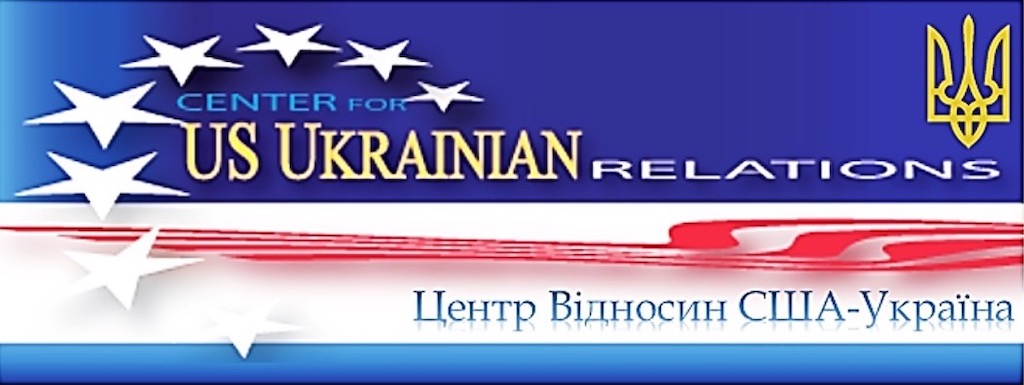
DC “Occasional Briefings” Series
VII. CUSUR & the DC ‘Occasional Briefings’ Series (2025)
CUSUR did not turn its attention to having a DC presence until the summer of 2012. Borrowing space when the need arose (particularly for various forum steering committee meetings) from the American Foreign Policy Council, its longest-abiding partner, seemed to suffice; an Acela ride from the Center’s NY office did the rest. If there was a concern, it was to find appropriate representation in Kyiv.
Matters changed when the Jurkiw Family Fund decided to provide the Center with a truly munificent ‘pozhertva’ (offering); it allowed CUSUR to open a bureau in DC (on the premises of APFC). With the acquisition of the stated space, CUSUR was additionally given access to what has fondly come to be called AFPC’s own ‘Situation Room’.
The additional capabilities led the CUSUR Board of Directors to add one more item to the Center’s busy menu—the Occasional Briefings Series. The new series helped provide CUSUR (and, by extension, the US UA Working Group) with the ability to analyze rapidly changing developments in the Ukrainian political landscape and provide timely responses throughout crisis-filled months of late 2013.
Such flexibility proved of utmost importance once a new even more turbulent state of affairs in Ukraine appeared in 2014 (the success of the Euro-Maidan and the subsequent ‘hybrid war’ that RU initiated in Crimea & Donbas). To enhance the flexibility, the Occasional Briefings Series brought new (younger) generation of actors in the political, social, intellectual and cultural arenas of Ukrainian life to DC to explore ‘novel trends’, as they emerged. It also brought recently minted UA military commanders and senior security analysts to Capitol Hill to provide a proper understanding of the ‘conflict’ taking place first in Crimea and then on ‘UA’s Eastern Front’
The latter proved to be a crucial exercise starting in October 2014, after Ukraine’s new president, Petro Poroshenko, arrived in Washington DC to ask for means with which to contain a massive/open Russian military incursion into Eastern Ukraine that had started in August of the same year (in contrast to earlier RU escapades using ‘little green men’ and ‘secessionist cadres’). When the Obama Administration balked at the request, the Ukrainian American Hromada, having formed an Ad Hoc Committee on Ukraine (AHCU), sought to mobilize the US Congress to counter the balk. AHCU, impressed with the military and security personnel that CUSUR had earlier sponsored, asked the Center to do a reprise of its ‘defense discussions on the Hill’ in mid-November. The CUSUR reprise and serious lobbying by the AHCU helped obtain passage of a Ukraine Freedom Support Act in mid-December (2014) authorizing the POTUS to provide lethal weaponry to the UA Armed Forces and providing the appropriate funds for the authorization.
In 2015-2021, CUSUR kept pursuing the Occasional Briefing Series construct on two fronts:
[1] Using frequently blunt Chatham House style ‘conversations’ as often as once a month, the Center kept a watchful eye over the Ukraine Freedom Support Act and AHCU. When the Act stalled in the implementation stage in early 2015, CUSUR helped the AHCU press for the creation of a ‘Senate Task Force on Ukraine’ (modeled on the 1980s Senate Task Force on Afghanistan) designed to pressure the POTUS to release and deliver materiel (anti-armor weapons, counter artillery radars, secure forms of communication) that had already received the proper legislative authorization and appropriation. In mid-2016, CUSUR, working with AUC, managed to elicit an even more comprehensive authorization/appropriation packet from Congress: The Stand with Ukraine bill.
[2] Starting in 2017, CUSUR took to sponsoring meetings/discussions between various Rada deputies from the most reform-minded of UA’s political parties and senior-level US government and NGO officials at myriad venues through DC to keep everyone abreast of the ‘actual pace’ of needed internal (political or security) improvements in UA. Between CUSUR managed to organize several notable Occasional Briefing gatherings on the issue, featuring in the two-time Hero of Ukraine, Lt. General Zabrodsky, a delegation from the Ukrainian Strategic Initiative group (led by former leading Rada Committee on National Security member Andriy Levus) and UCU Vice Rector Myroslav Marynowych, an esteemed chronicler of Ukraine’s liberation struggles in the late mid 20th century.
The Russo-Ukrainian war intervened (2022-2024) to postpone CUSUR’s attempt to open two further fronts in its Occasional Briefings Series. For one, CUSUR had intended to regularly bring smaller-scale Ukrainian entrepreneurs to DC, particularly in the fields that can rather quickly yield success: agriculture, steel & steel products, aerospace, and information technology. The message that CUSUR ultimately planned to promote with the visits was the idea of ‘a mini Marshall Plan’ for Ukraine. Second, CUSUR had intended to invite academics from various institutions of higher learning (civilian and military: Ukrainian, European, Canadian, and US) to discuss Russian advances in the art of ‘informational warfare’ at gatherings on Capitol Hill. In the place of the contemplated projects, CUSUR began to run a series of informal pre and post-CUSUR forum ‘brain-stormers’ using the various US-UA SD and US-UA WG Summit and UA Quest RT speaking participants to give their (often very frank) views on the war and the US’ role in the conflict. By late 2024, the gatherings took a formal character (a program, moderators, specific initial discussants).
In 2025, CUSUR expects to revisit the ‘highlighting Ukraine’s smaller entrepreneurs and ‘informational warriors in DC’ projects and equally intends to make the pre/post forum ‘brain-stormers’ a formal part of CUSUR ‘Occasional Briefings’ calendar.